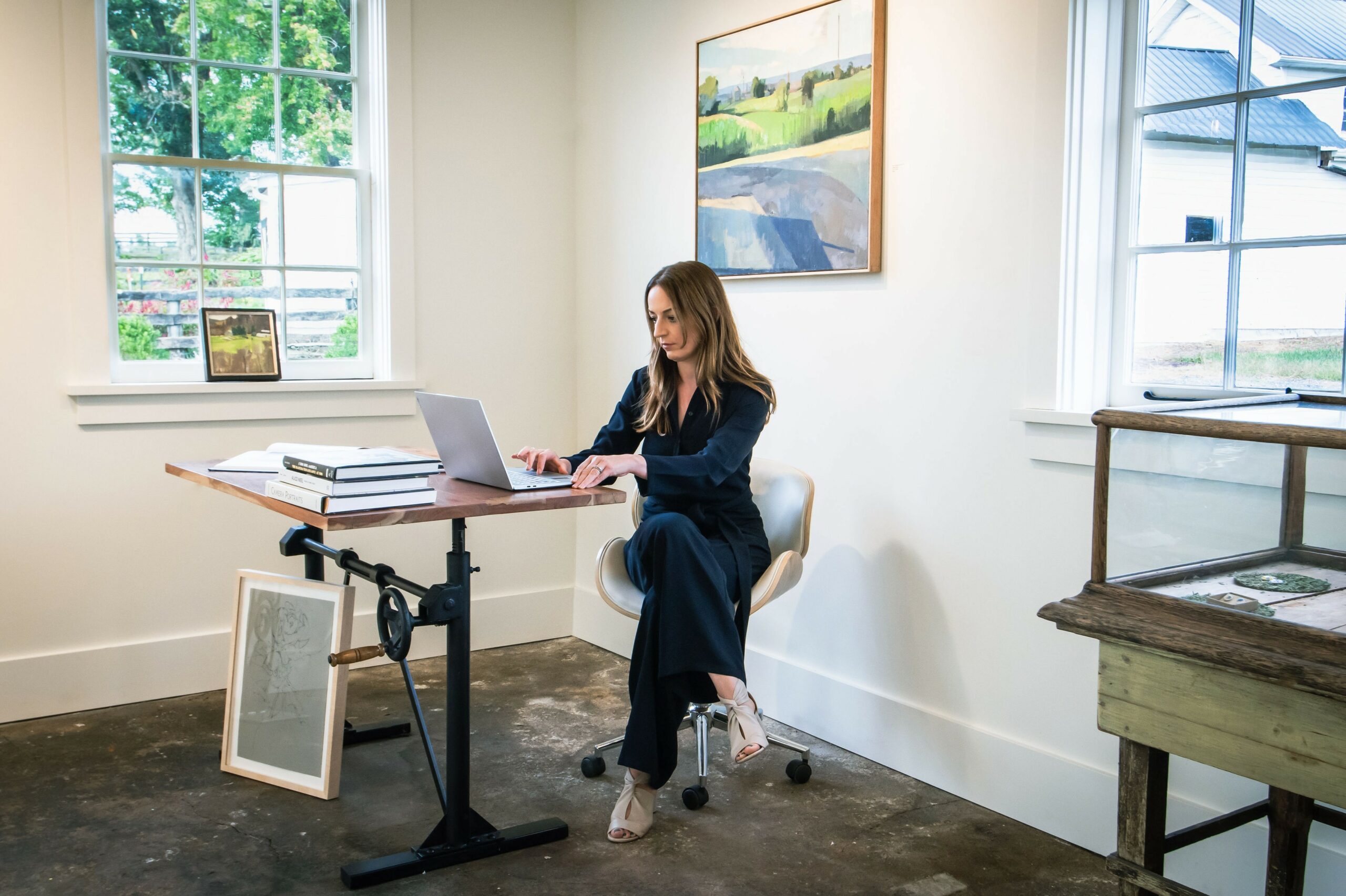We were lucky to catch up with Hayley Sykes recently and have shared our conversation below.
Hayley, looking forward to learning from your journey. You’ve got an amazing story and before we dive into that, let’s start with an important building block. Where do you get your work ethic from?
I get my work ethic from my mum. Our family is very working class, and my mum had two, sometimes three jobs for my entire childhood and much of my adult life, only dropping to one in her sixties. I don’t think I work as hard as her, and I have a lot more choice when it comes to what I work for and on than she ever did, but I try to hold true to her adage ‘if a jobs worth doing, it’s worth doing properly.’
Appreciate the insights and wisdom. Before we dig deeper and ask you about the skills that matter and more, maybe you can tell our readers about yourself?
I’m now on my second career as a gallery owner and art and antiques appraiser in a business I set up from scratch with a limited pool of money from my meagre savings. I changed career in my early forties because I wanted to work in the arts as I find them and the people that create or created art fascinating, and enriching, and I love understanding and helping to protect the items that people have worked hard to collect over the years. The stories in those items are so varied and enduring. I wish I had the talent to write a book about them. Maybe, one day.
In the gallery, I represent national and international artists who are living and working today, and cover a variety of medium including sculpture, painting, collage, ceramics, photography. I typically focus on artwork that can be described as modern realism, impressionistic, and abstract. I believe that I am incredibly lucky to spend my days surrounded by beautiful things and having the opportunity to support the artists who create them, hopefully helping them to build a brand and a collector base along the way.
In my art and antique appraisal business I also offer valuation, and estate planning services such as cataloging and downsizing, as well as appraising works of art or antiques for insurance purposes, charitable donation, division of assets and various estate matters. More often than not, I’m covered in dust, crawling under furniture, or using various strengths of magnifier in this work, and it is more physical and fatiguing than I anticipated, but I enjoy it too, and I get a huge sense of satisfaction when a client benefits emotionally or financially from the work I did for them. Often times, I’m working with people in major life-change moments, so it’s important to balance ‘getting the job done’ with creating a sense of harmony and trust so as to reduce some of the pressure they are under- that feels good.
Looking back, what do you think were the three qualities, skills, or areas of knowledge that were most impactful in your journey? What advice do you have for folks who are early in their journey in terms of how they can best develop or improve on these?
Getting my qualifications to be an appraiser through the American Society of Appraisers was critical. I wanted a program that was known for its ethical focus and academic/practical rigor, and I got it. After several years of taking classes while I worked my full-time job and ran the gallery ‘on the side’, I felt ready to take on clients. At times it was a little draining, but I’m glad I did it, as I wanted to offer the highest standards of my profession to my clients.
For the gallery, I’m told I have a ‘good eye’, and I think that is a critical quality for anyone in my line of work, whether it be selecting art for exhibit or discerning artist signatures, or quality of a silverware set, for example. I’m lucky, I guess that was just something I was born with, but being able and willing to explain what that means, why you made those decisions, and how, is important, so that people trust you and are also able to learn the skill for themselves.
I learn mostly from looking and listening, and to be honest I do horribly badly following written instructions- my baking is a testimony to that- so I’m lucky I’m in such a visual world. With that said, I’ve known from an early stage what my learning style is, and I work hard at developing it. I think knowing how you learn, understanding what your gaps are, and trying to close those, is a great tool that will set you up for success.
How would you describe your ideal client?
While I don’t think there is such a thing as an ‘ideal’ client, someone who is willing to reach out because they need help, in any of the areas where I can assist, is an ideal client for me. That willingness to reach out tells me they care about what they have, or want to have, and they know that they need to let someone else in to work for and with them.
Contact Info:
- Website: www.dwellfineart.com
- Instagram: https://www.instagram.com/dwellfineartandcraft/







Image Credits
Tara Jelenic photography June Upton Artist Jodi Ferrier Artist




